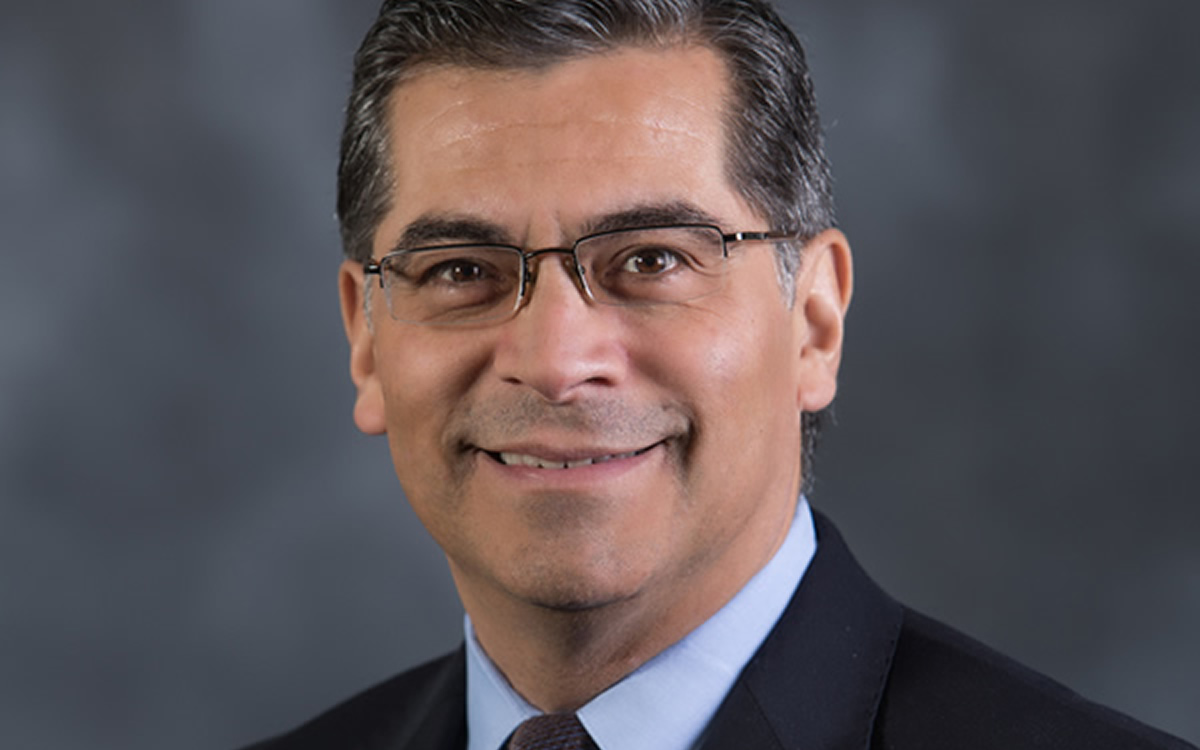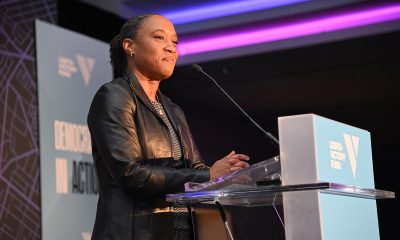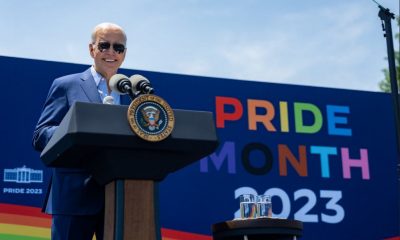News
Women politicos to take center stage at DNC LGBT gala
Parker, Jones and Healey among speakers at high-dollar event

Women politicos that include Victory Fund President and CEO Annise Parker, Texas congressional candidate Gina Ortiz Jones and Massachusetts Attorney General Maura Healey are set to speak at the annual DNC LGBT gala. (Washington Blade photo of Parker by Michael Key; photo of Jones by Ana Isabel Photography courtesy Jones Campaign; photo of Healey by Edahlpr via Wikimedia Commons)
At a time when female candidates are taking center stage in the 2018 congressional mid-term elections, a quartet of women politicos are set to speak at an upcoming LGBT gala hosted by the Democratic National Committee in New York City, the Blade has learned.
Three of the women — Annise Parker, Gina Ortiz Jones, Maura Healey — are lesbians, and the other, Danica Roem, is a transgender woman. Each of them is running or has run political campaigns of special significance for LGBT people.
All of them will speak before high-dollar donors to the Democratic Party at the DNC’s 19th annual LGBT gala in New York City, which is set to take place June 25 at Ziegfeld Ballroom. The tickets range from $1,200 to $5,000 per seat, according to an online invitation.
Annise Parker, a former three-term mayor of Houston, holds the distinction of being one of the first openly gay mayors of a major U.S. city. She now serves as executive director of the LGBTQ Victory Fund and Institute.
Gina Ortiz Jones, a former Air Force intelligence officer who served in the Iraq war, is running to represent the 23rd congressional district in Texas against incumbent Rep. Will Hurd (R-Texas). Democrats have made her race in the Hispanic-majority district a priority. Hurd narrowly won re-election in 2016 and political observers have rated it as a toss-up.
Massachusetts Attorney General Maura Healey, who will be the keynote speaker at the DNC gala, won election in 2014 and became the first openly gay state attorney general in the United States. She’s seeking re-election in the 2018 election.
The other speaker, Virginia State Del. Danica Roem (D-Prince William County), is the first openly transgender person elected and seated to a state legislature in the United States. The DNC had already announced last month her plan to attend the gala.
Another speaker already announced for the event is Gus Kensworthy, a gay freestyle skier who refused to attend the ceremony at the White House with fellow members of the 2018 U.S. Winter Olympic team out of objections to the Trump administration’s anti-LGBT policies. Another guest is Taylor Trensch, who’s gay and the star of the stage musical “Dear Evan Hansen.”
According to the DNC, the annual gala began in 1999 as a small dinner held by Andrew Tobias, who’s gay and a former DNC treasurer, but has grown to one of the biggest events for Democrats. Last year, former Vice President Joseph Biden was the keynote speaker.
DNC Chair Tom Perez hailed the newly announced women speakers as leaders in the LGBT movement and the women’s rights movement.
“In the face of sustained Republican efforts to roll back the progress we’ve made, leaders within the LGBTQ community, LGBTQ women in particular are stepping up, running for office and fighting back,” Perez said. “Attorney General Maura Healey, Mayor Annise Parker and Gina Ortiz Jones are trailblazers in their communities and I’m proud that they know that building Democratic infrastructure helps LGBTQ candidates at every level, from school board to Senate.”
Also praising the speakers was DNC Finance Chair Henry Munoz, who said the party is “thrilled to welcome such inspiring LGBTQ women to speak at this year’s gala.”
“Americans across the country want to see more women elected, and Democrats are making this happen in 2018,” Munoz said. “With trailblazers like Attorney General Maura Healey, Mayor Annise Parker and Gina Ortiz Jones leading the way, we are going to win big this November.”
Federal Government
HHS reverses Trump-era anti-LGBTQ rule
Section 1557 of the Affordable Care Act now protects LGBTQ people

The U.S. Department of Health and Human Services Office for Civil Rights has issued a final rule on Friday under Section 1557 of the Affordable Care Act advancing protections against discrimination in health care prohibiting discrimination on the basis of race, color, national origin, age, disability, or sex (including pregnancy, sexual orientation, gender identity, and sex characteristics), in covered health programs or activities.
The updated rule does not force medical professionals to provide certain types of health care, but rather ensures nondiscrimination protections so that providers cannot turn away patients based on individual characteristics such as being lesbian, gay, bisexual, transgender, queer, intersex, or pregnant.
“This rule ensures that people nationwide can access health care free from discrimination,” said HHS Secretary Xavier Becerra. “Standing with communities in need is critical, particularly given increased attacks on women, trans youth, and health care providers. Health care should be a right not dependent on looks, location, love, language, or the type of care someone needs.”
The new rule restores and clarifies important regulatory protections for LGBTQ people and other vulnerable populations under Section 1557, also known as the health care nondiscrimination law, that were previously rescinded by the Trump administration.
“Healthcare is a fundamental human right. The rule released today restores critical regulatory nondiscrimination protections for those who need them most and ensures a legally proper reading of the Affordable Care Act’s healthcare nondiscrimination law,” said Omar Gonzalez-Pagan, counsel and health care strategist for Lambda Legal.
“The Biden administration today reversed the harmful, discriminatory, and unlawful effort by the previous administration to eliminate critical regulatory protections for LGBTQ+ people and other vulnerable populations, such as people with limited English proficiency, by carving them out from the rule and limiting the scope of entities to which the rule applied,” Gonzalez-Pagan added. “The rule released today has reinstated many of these important protections, as well as clarifying the broad, intended scope of the rule to cover all health programs and activities and health insurers receiving federal funds. While we evaluate the new rule in detail, it is important to highlight that this rule will help members of the LGBTQ+ community — especially transgender people, non-English speakers, immigrants, people of color, and people living with disabilities — to access the care they need and deserve, saving lives and making sure healthcare professionals serve patients with essential care no matter who they are.”
In addition to rescinding critical regulatory protections for LGBTQ people, the Trump administration’s rule also limited the remedies available to people who face health disparities, limited access to health care for people with Limited English Proficiency, and dramatically reduced the number of healthcare entities and health plans subject to the rule.
Lambda Legal, along with a broad coalition of LGBTQ advocacy groups, filed a lawsuit challenging the Trump administration rule, Whitman-Walker Clinic v. HHS, and secured a preliminary injunction preventing key aspects of the Trump rule from taking effect.
These included the elimination of regulatory protections for LGBTQ people and the unlawful expansion of religious exemptions, which the new rule corrects. The preliminary injunction in Whitman-Walker Clinic v. HHS remains in place. Any next steps in the case will be determined at a later time, after a fulsome review of the new rule.
GLAAD President Sarah Kate Ellis released the following statement in response to the news:
“The Biden administration’s updates to rules regarding Section 1557 of the ACA will ensure that no one who is LGBTQI or pregnant can face discrimination in accessing essential health care. This reversal of Trump-era discriminatory rules that sought to single out Americans based on who they are and make it difficult or impossible for them to access necessary medical care will have a direct, positive impact on the day to day lives of millions of people. Today’s move marks the 334th action from the Biden-Harris White House in support of LGBTQ people. Health care is a human right that should be accessible to all Americans equally without unfair and discriminatory restrictions. LGBTQ Americans are grateful for this step forward to combat discrimination in health care so no one is barred from lifesaving treatment.”

Maryland Gov. Wes Moore on Thursday signed a bill that seeks to combat efforts to ban books from state libraries.
House Bill 785, also known as the Freedom to Read Act, would establish a state policy “that local school systems operate their school library media programs consistent with certain standards; requiring each local school system to develop a policy and procedures to review objections to materials in a school library media program; prohibiting a county board of education from dismissing, demoting, suspending, disciplining, reassigning, transferring, or otherwise retaliating against certain school library media program personnel for performing their job duties consistent with certain standards.”
Moore on Thursday also signed House Bill 1386, which GLSEN notes will “develop guidelines for an anti-bias training program for school employees.”

The Mexican Senate on Thursday approved a bill that would ban so-called conversion therapy in the country.
Yaaj México, a Mexican LGBTQ rights group, on X noted the measure passed by a 77-4 vote margin with 15 abstentions. The Chamber of Deputies, the lower house of Mexico’s congress, approved the bill last month that, among other things, would subject conversion therapy practitioners to between two and six years in prison and fines.
The Senate on its X account described conversion therapy as “practices that have incentivized the violation of human rights of the LGBTTTIQ+ community.”
“The Senate moved (to) sanction therapies that impede or annul a person’s orientation or gender identity,” it said. “There are aggravating factors when the practices are done to minors, older adults and people with disabilities.”
Mexico City and the states of Oaxaca, Quintana Roo, Jalisco and Sonora are among the Mexican jurisdictions that have banned the discredited practice.
The Senate in 2022 passed a conversion therapy ban bill, but the House of Deputies did not approve it. It is not immediately clear whether President Andrés Manuel López Obrador supports the ban.
Canada, Brazil, Belgium, Germany, France, and New Zealand are among the countries that ban conversion therapy. Virginia, California, and D.C. are among the U.S. jurisdictions that prohibit the practice for minors.
-

 District of Columbia4 days ago
District of Columbia4 days agoCatching up with the asexuals and aromantics of D.C.
-

 South America3 days ago
South America3 days agoArgentina government dismisses transgender public sector employees
-

 Maine5 days ago
Maine5 days agoMaine governor signs transgender, abortion sanctuary bill into law
-

 District of Columbia4 days ago
District of Columbia4 days agoBowser budget proposal calls for $5.25 million for 2025 World Pride












